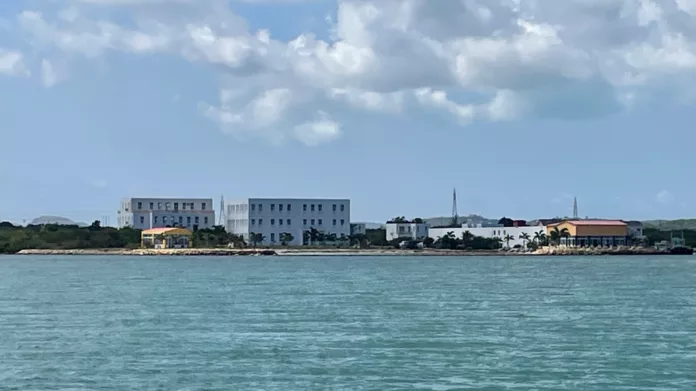
By Elesha George
The process to acquire the Antigua and Barbuda Special Economic Zone (ABSEZ) from investor Yida Zhang seems to be moving fast ahead with legal changes being made both in Parliament and in the courts.
The new group, which according to a parliamentary statutory instrument passed last Thursday, goes by the name Special Economic Zone Holdings (SEZH) and has taken over half of the lands within the 1,600-acre zone.
The sale, based on the legislative order, includes 267.09 acres of land at Gilberts, 430.13 acres at Crabbs Peninsula and 52 acres in St Phillip’s North, totalling 749.22 acres. While the document refers to ‘neighbouring islands’ it does not specifically state whether the sale will include the offshore islands of Guiana, Crump Island, Maiden Island and Rabbit Island which were part of previous plans to build out the SEZ.
In reviewing the order, the government sought to make a few changes but kept the tax incentives and concessions that it believes will attract foreign direct investments.
These incentives have been controversial, particularly the permanent tax-free zone status of this zone and others like it. Some of the taxes cited are not currently in place in Antigua and Barbuda but others, like sales tax and import duties, have angered critics.
- The zone shall be free of all taxes levied in Antigua and Barbuda
- Waiver of all corporate and personal income taxes
- Waiver of all import and export duties and taxes
- Waiver of value-added tax, sales tax and capital gains tax
- Waiver of all sales and operation and development taxes and duties
- Waiver of inheritance and gift taxes
- Waiver of capital gains taxes and wealth taxes
Notable changes include categories of approved functional businesses and industries being increased from 20 to 35 to include crypto operations and exchange; industrial manufacturing parks for the pharma, consumer goods and chemical industries; international hotels and resorts; food court facilities; as well as any other business “which can fully be conducted in and from the zone”.
It also expands the role of the advisory board and the zone management committee, giving them more specific oversight of the zone, to include allowing the advisory board to:
1) enable a single one-stop shop for processing permits and approvals for all projects, investors, interested commercial entities etc
2) have the responsibility to advise on the operations of the Customs, immigration, police and labour departments within the zone
Among other things, the zone management committee is responsible for:
i) formulating policies and rules regarding fees, charges, levies and contributions collected from each entity and individual
ii) enter into a signed agreement with every successful applicant and deliver a copy of the certificate to the minister
Other changes include perpetual food and beverage concessions, a one-stop shop for ease of doing business, added fees for applicants that are payable to the zone management committee, and the criteria for admission of entities.
For the construction and licences approval, where the only job of the Development Control Authority (DCA) was to receive approvals and permits issued from the zone, the government has added that the DCA “must be informed and notified so as to ensure the laws of Antigua and Barbuda are observed and complied with”. This however does not on the surface give the DCA much power to enforce its recommendations.
Importantly, the ‘land use right’ section of the order has been removed. This section allowed proposed projects within the zone that did not have enough land to take up space outside of the zone and be treated as “a natural and legal extension of the zone” with attached rights and concessions.
The government removed a subsidy for entities that would implement “clean production” projects as well as a 10 percent profit it would have received from fish farming.
The old order made Yida International Investment Antigua Limited and its offices in China the only government-approved offices authorised to receive Citizenship by Investment Programme (CIP) applications from Chinese passport holders.
That has been removed and now states that the new operators will be the approved project for the CIP programme, and act as the authorised representatives for marketing their CIP product. They have reduced the investment required to qualify as a CIP product from US$400,000 to US$200,000.
Meanwhile a court hearing is expected today between Yida International Investment Holdings Company Limited vs Yida International Investment Antigua Limited, reportedly to iron out Yida’s existing entities following the sale.
These procedures are all part of the process of shifting the rights and obligations of the SEZ from Yida to Special Economic Zone Holdings.
